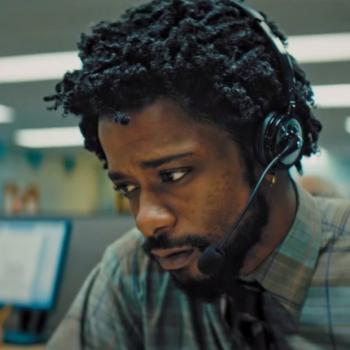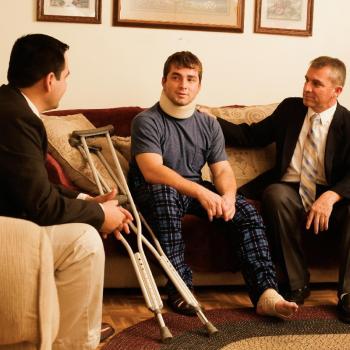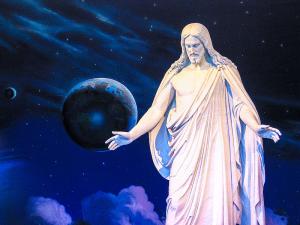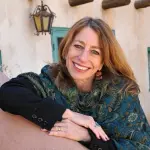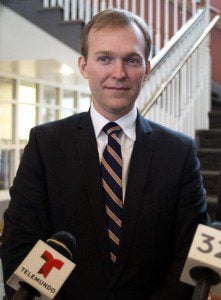
The experience Salt Lake County Mayor Ben McAdams gained on his Mormon mission helped him bridge economic and political divides. A year of national service could do the same for young Americans.
A few months ago I finished reading Hillbilly Elegy, an engaging memoir by J.D. Vance that has been seized upon to explain the historic shift of blue-collar whites from their Democratic roots to voting for Trump in the 2016 election. In it, Vance discusses how many working-class whites, especially those with Scots-Irish, Appalachian origins, are caught in a vicious cycle of poverty and family dysfunction that is perpetuated in part by a lack of exposure to the stable, prosperous lifestyles that are lived by many in America’s middle class.
Vance’s lament of the class segregation that afflicts American society reminded me of Harvard professor Cass Sunstein’s recent book #Republic: Divided Democracy in the Age of Social Media. Sunstein describes how the algorithms of social media networks like Facebook have led to the increasingly “siloed” state of public discourse – people are often not exposed to political ideas and perspectives that differ from their own. This digital divide makes it more difficult for Americans to achieve the social cohesion and consensus that are needed to solve the difficult social and policy problems of our age, like the looming insolvency of Social Security, frayed race relations, and impending job losses from automation.
Thinking about these two sources of social dysfunction called to mind the story of current Salt Lake County Mayor Ben McAdams. Around 5 or 6 years ago, when I was president of BYU Democrats, I invited then-Senator McAdams to address our club. During his informal, Q&A-style presentation, McAdams related his upbringing in a working-class Utah family and how the experience of his Mormon mission, where he served with missionaries from upper-class, white-collar families, gave him a glimpse of a way of living that he wanted to emulate. This exposure would inspire him, after his mission, to graduate from Columbia Law School and work for the prestigious international law firm Davis Polk & Wardwell.
Although his mission helped him bridge the divide between his working-class background and a position as a successful New York attorney, I can’t help but wonder if the lessons from it later helped him bridge political divides. When I was a missionary, I was exposed to people, both companions and those I taught, from a variety of political persuasions. Some people I encountered were die-hard socialists, others were radical libertarians, while still others were unbending social conservatives. In order to relate to these people, I had to understand and respect their points of view, even though I often disagreed with them.
I think it’s likely that McAdams learned the same kinds of lessons on his mission that I learned on mine. After moving back to Utah from New York, he ran for and won a state senate seat in one of the most liberal districts in Utah. Although this may seem unremarkable, the fact that McAdams was an active member of the LDS Church, and that his district was very LGBT-friendly, makes his election something of a “black swan.” But an examination of how McAdams interacts with people makes his victory seem less improbable – he seeks out people with differing views, lets them know that he cares for and respects them, and tries to find consensus. He would later put his reputation for consensus building to good use when he ran for Salt Lake County mayor – he reached across the aisle and earned the enthusiastic endorsement of a slew of Republican elected officials. This bipartisan support, likely rooted in bridge-building skills he learned on his mission, helped him capture the Salt Lake County mayoralty in 2012, a year that was unforgiving to other Utah Democrats.
Ben McAdams is a prime example of how Mormon missions can be an excellent means of addressing the class and political divides that plague America. By spending two years or 18 months of one’s life in constant contact with people from a variety of socio-economic backgrounds, ethnicities, nationalities, and political persuasions, one can be inspired to rise out of poverty and collaborate with those who are different. Perhaps this is why Mormons were so resistant to the candidacy of Donald Trump – they don’t see Muslims, Hispanics, or political opponents as “bad people” who should be otherized and persecuted. Rather, they see them as they truly are – as fellow human beings who need to be understood, not feared.
Of course, not everyone is Mormon, and not everyone can serve a mission. But the benefits that a Mormon mission can produce could be replicated through similar means. For example, many have advocated for a year of national service, a time right after high school graduation which young Americans could devote to serving the less fortunate, tutoring young children, or aiding the elderly. Such a program, which could be funded by both the government and private donors, could bring Americans of a variety of backgrounds into contact with each other, helping to repair the class and political divides that afflict us. Republicans from Georgia could help serve the hungry in Chicago alongside Democrats from Minnesota. The sons and daughters of laid-off manufacturers in Ohio could collaborate with the children of Silicon Valley entrepreneurs to help Syrian immigrants resettle in Salt Lake City.
Our nation has just passed through a divisive election, and it is currently living through a divisive presidency, led by a man who seems hell-bent on exacerbating the economic and political cleavages that pull us apart. Learning from the example of Ben McAdams, and of Mormon missions, by promoting national service could serve to rebuild the ties that bind us all together as Americans and as citizens of the world.


